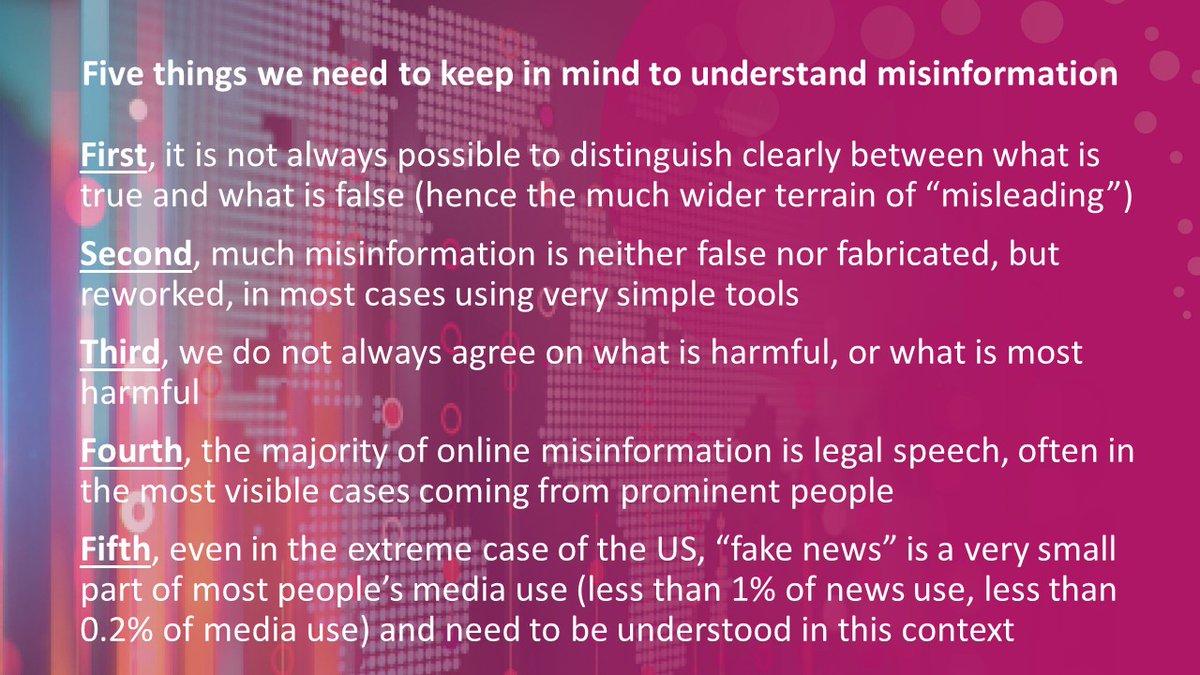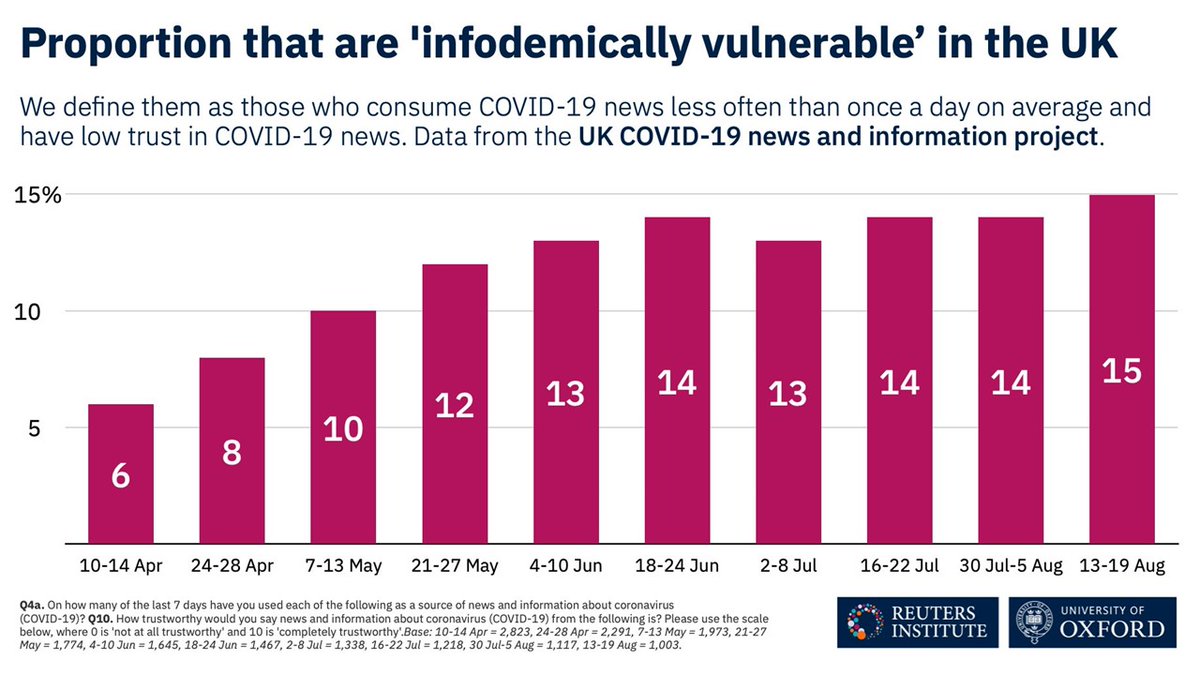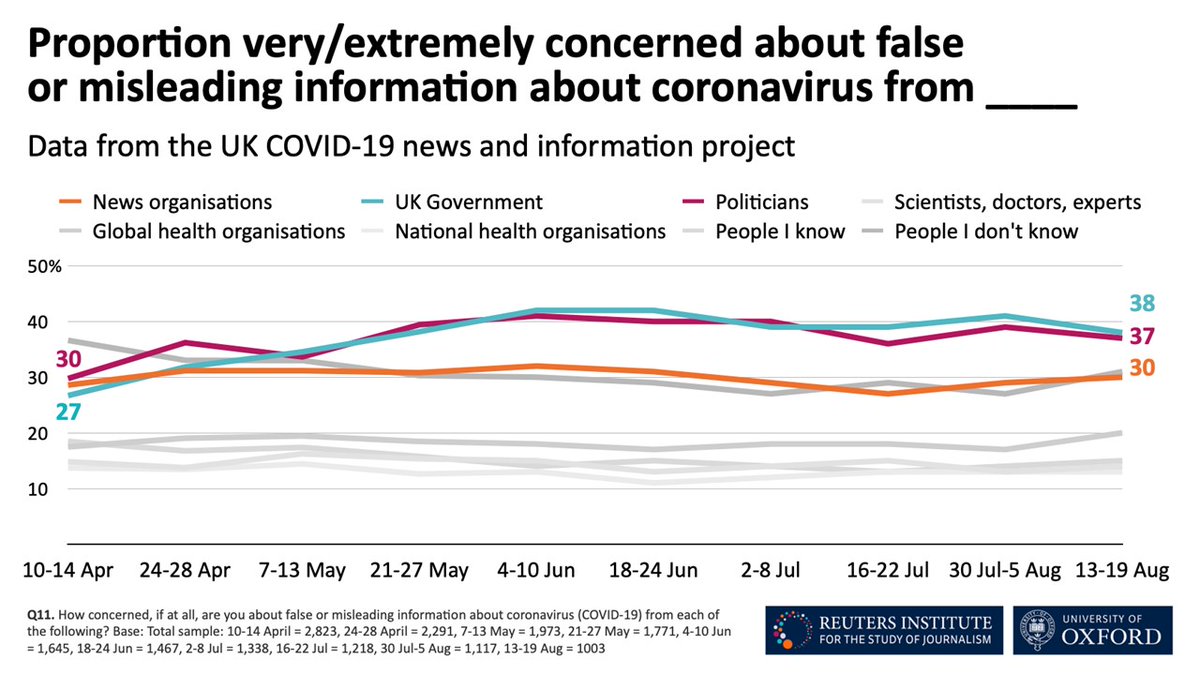The #covid19 pandemic has seen a surge in online misinformation, much of it shared on platforms, posing a real risk to individual and public health.
Speaking today at @WMFEvents about @risj_oxford and other research in this area. Five broad points below, some links in thread 1/7
Speaking today at @WMFEvents about @risj_oxford and other research in this area. Five broad points below, some links in thread 1/7
From beginning of crisis, we (and many others) have documented the massive growth in misinformation, much of it shared on social media, often by prominent people, and more often reworked and misleading than fabricated and false
See @jsbrennen et al https://reutersinstitute.politics.ox.ac.uk/types-sources-and-claims-covid-19-misinformation 2/7
See @jsbrennen et al https://reutersinstitute.politics.ox.ac.uk/types-sources-and-claims-covid-19-misinformation 2/7
This is serious, and for minority who are exposed to or seek out a lot of misinformation, potentially very serious, but remember context - as e.g. @_JenAllen et al have shown in the US, for most people, fake news is small part of overall news+media use https://advances.sciencemag.org/content/6/14/eaay3539 3/7
In UK specifically, we have found most people are informed, cautious, and willing to take further measures, in part thanks to news, but that information inequality has been growing throughout the crisis, aligned with age, gender, income, education. See https://reutersinstitute.politics.ox.ac.uk/communications-coronavirus-crisis-lessons-second-wave
4/7
4/7
Even more worringly, we identify a growing minority of ‘infodemically vulnerable’ people, defined as those who consume little to no news and information about COVID-19, and say they would not trust it even if they did https://reutersinstitute.politics.ox.ac.uk/communications-coronavirus-crisis-lessons-second-wave 5/7
Those who actively seek out misinformation constitutes one problem. Infodemically vulnerable another problem
For larger remaining part of the public, we find they are mostly concerned about false or misleading #covid19 information from UK government and domestic politicians 6/7
For larger remaining part of the public, we find they are mostly concerned about false or misleading #covid19 information from UK government and domestic politicians 6/7
For links to @risj_oxford on news, media, and misinfo during pandemic see
@jsbrennen et al report https://reutersinstitute.politics.ox.ac.uk/types-sources-and-claims-covid-19-misinformation
@dragz et al report https://reutersinstitute.politics.ox.ac.uk/infodemic-how-people-six-countries-access-and-rate-news-and-information-about-coronavirus
And UK COVID news and information project supported by the @NuffieldFound, all here https://reutersinstitute.politics.ox.ac.uk/UK-COVID-19-news-and-information-project
7/7
@jsbrennen et al report https://reutersinstitute.politics.ox.ac.uk/types-sources-and-claims-covid-19-misinformation
@dragz et al report https://reutersinstitute.politics.ox.ac.uk/infodemic-how-people-six-countries-access-and-rate-news-and-information-about-coronavirus
And UK COVID news and information project supported by the @NuffieldFound, all here https://reutersinstitute.politics.ox.ac.uk/UK-COVID-19-news-and-information-project
7/7

 Read on Twitter
Read on Twitter





